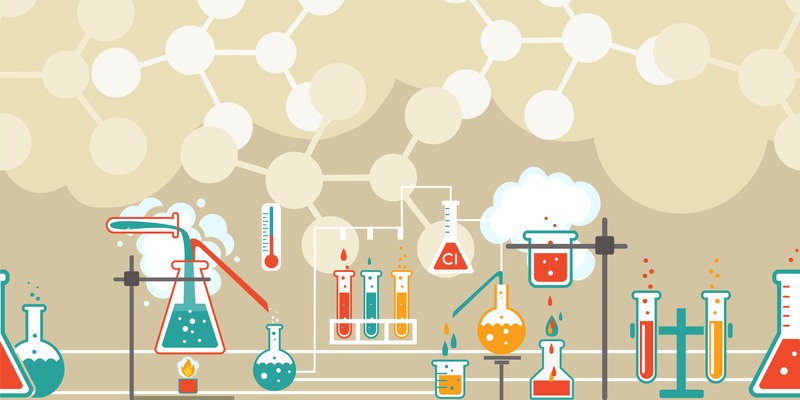In a typical high school, students will do much of their learning sitting inside a classroom, listening to an instructor lecture. With class after class of this routine, such learning can sometimes feel tedious and repetitive. Thus, many students are excited by the opportunity to deviate from this typical mode of instruction and step into the science laboratory.
Lab classes can be fun and provide students with an excellent hands-on opportunity to learn. However, they can also become dangerous rather quickly if the proper safety precautions and lab etiquette are not respected.
Handling delicate electronic pipettes, hot Bunsen burners, and toxic chemicals requires a great deal of care and attention. Believe it or not, the lab-accident rate at schools and colleges is 100 to 1,000 times greater than that in industrial labs, according to Discover Magazine.
To help make sure you stay safe, be sure to review the following five tips before stepping foot inside your first lab class:
Besides verbal instructions, you will also typically be provided with a printed guide, often with diagrams and illustrations, explaining the experiment in detail.
While your teacher reviews the instructions, it’s critical to follow along so that you know how to perform the experiment safely and accurately once class begins.
Erica Cirino is a contributing writer for Varsity Tutors, the leading curated marketplace for private tutors. The company also builds mobile learning apps, online tutoring environments, and other tutoring and test prep-focused technologies.
1. Make sure you understand the experiment before starting an experiment
Before leading an experiment, your teacher will likely review the instructions that you and your classmates are to follow in the lab.2. Wear the right kind of clothing and gear
Wearing the right kind of clothing and gear in the lab helps keep you safe. Because each experiment involves the use of different equipment and chemicals, which vary in their degree of hazard, your teacher should provide you with detail on what to wear to each class, depending on the experiment. In general, however, you should never wear open-toed shoes in the lab. To mitigate the chance of you catching on fire, remove loose clothing, like scarves, and roll up long sleeves. To that end, you should also remove any dangling jewelry, and if you have long hair, tie it back. Always wear a lab coat or apron, gloves, and goggles when handling chemicals.3. Be aware of safety equipment and where it’s located
Though they are not something you should be preoccupied by, as mentioned above, accidents in school laboratories are rather common. Your teacher should review with you what safety equipment your lab contains. Some common types of lab safety equipment include emergency eye-washers and emergency showers, which should be used when chemicals get into the eyes or on one’s skin; exhaust hoods, which are used to divert dangerous chemical fumes and smoke; and fire blankets and fire extinguishers, which are used to douse fire. You should know how to use each so that you can react appropriately if an accident does occur.4. Fill out your lab form as you conduct your experiment
When working in a lab class, you’ll likely be required to fill out a lab form detailing your experiment. Often, this form is part of the lab instructions. When conducting the lab, fill out this form as you go along rather than trying to remember everything you did in the lab and filling it in after class is over. This will help ensure you don’t forget to record anything important, such as a precise measurement or detailed observation.5. Complete your lab report as soon as possible after the lab
After completing your experiment, filling out your lab form and cleaning up your experiment station in the lab, your teacher will probably require you to complete a lab report. Lab reports are a more detailed analysis of your experiment and how it connects to a larger scientific concept. Though your teacher will typically give you a few days to a week to finish a lab report, it pays off to complete it as soon as possible after its corresponding experiment. With the experiment’s concept and the steps you took to complete it still fresh in your mind, it should be much easier to complete a lab report – and complete it well – sooner rather than later. Plus, finishing your lab report early will give you time to reread it, and revise it when necessary.Erica Cirino is a contributing writer for Varsity Tutors, the leading curated marketplace for private tutors. The company also builds mobile learning apps, online tutoring environments, and other tutoring and test prep-focused technologies.
